A Special Year — Celebrating 10 Years of Commitment to Education for Children, Youth, and Adults in Ladakh, Himalaya
Ten years ago, Lobzang Rinchen laid the foundation for the adult education project in Ladakh. Since then, many adults have learned to read and write, opening up new perspectives for their lives. At the same time, children and young people have been able to strengthen their academic skills through targeted winter lessons. We look back with joy on the positive development over the past years and thank everyone who has contributed to this journey.
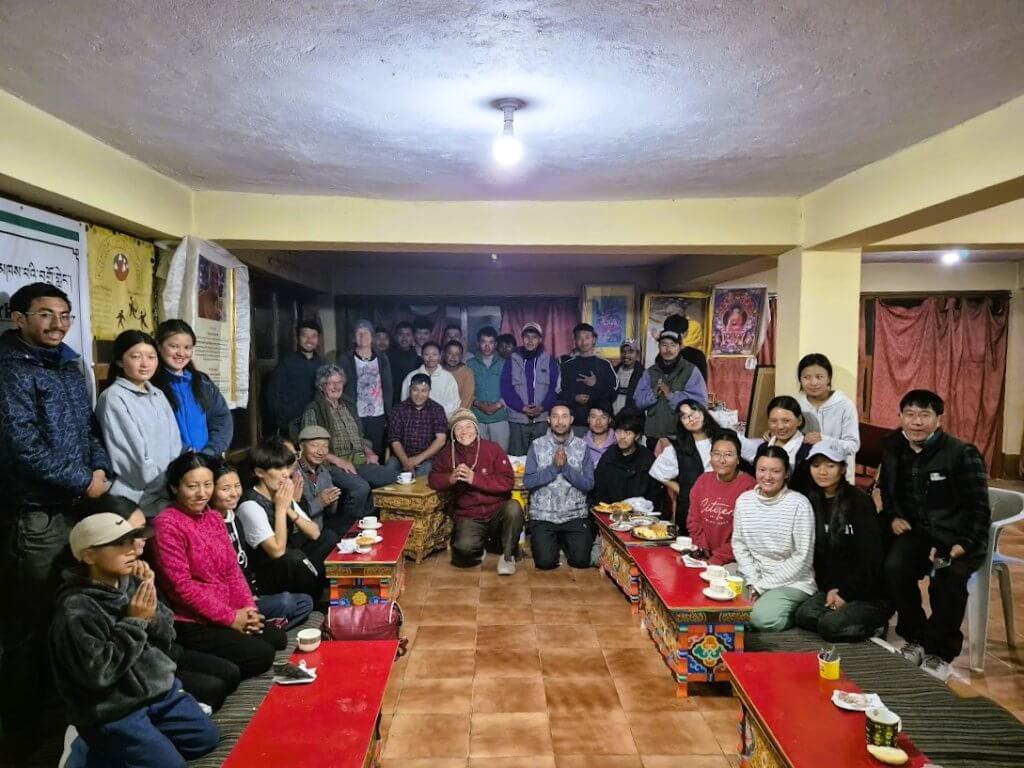
Sonam Dorje opened the evening with a warm welcome to all attendees. This was followed by an entertaining and engaging speech by Lobzang Rinchen, who took the audience on a journey through some of the most moving moments of the past 10 years. In the second part of his address, he focused on the important topics of education and cultural preservation.

A festive dinner rounded off the evening and provided an opportunity for personal conversations. We were especially delighted to reunite with former students we had met during our visit to the boarding school in Kalthse in the winter of 2018. They have grown into confident young women and men.
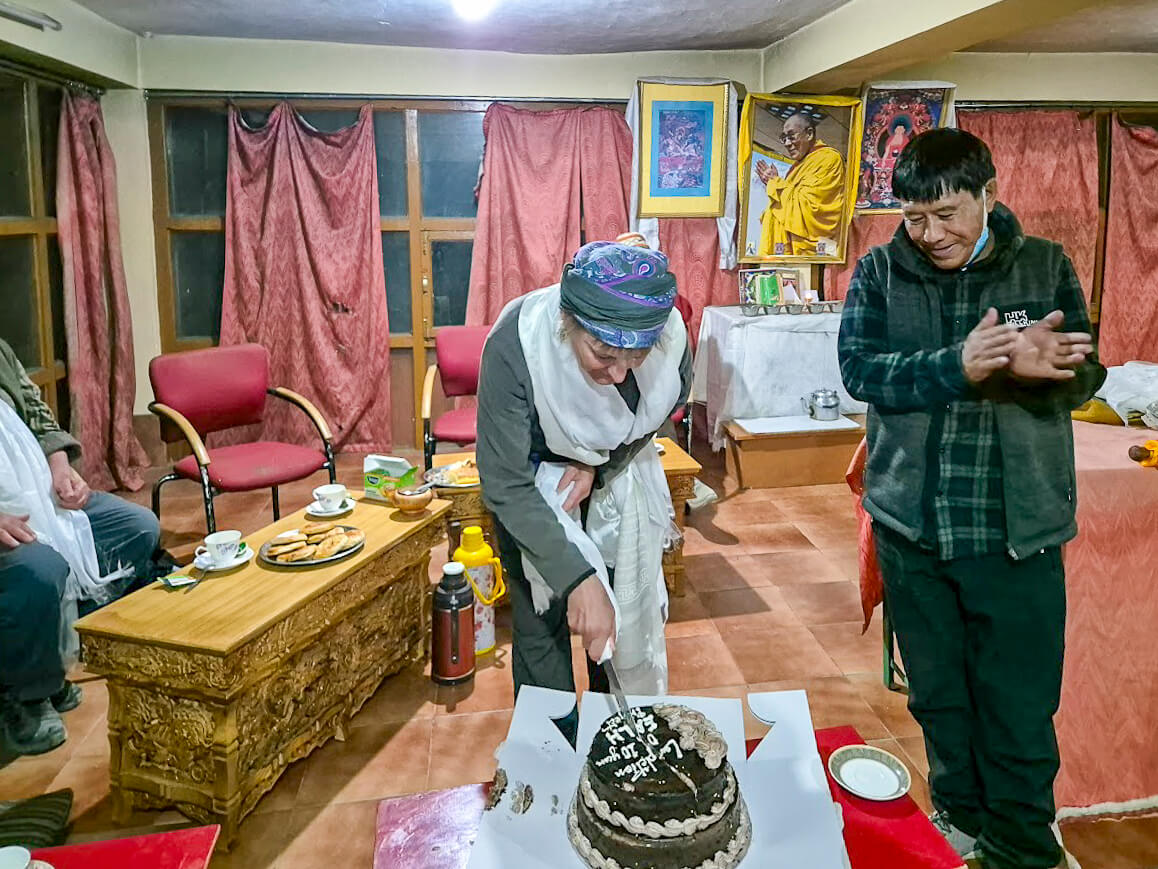
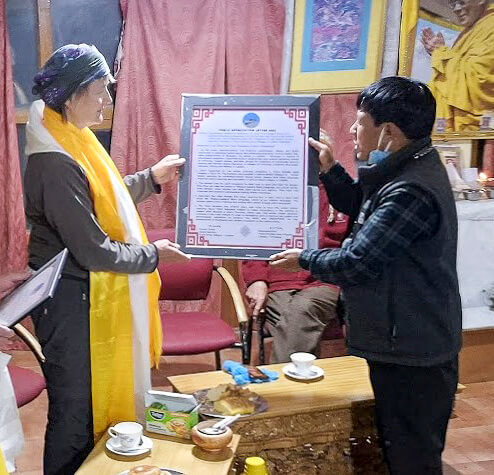

We sincerely thanked everyone for the wonderful evening, the many gifts, and the warm hospitality we received. It was an unforgettable moment that we will cherish fondly.
History of the Hostel in Choglamsar
Geshe Ngawang Jangchup is the founder of the hostel in Choglamsar, which he has been leading for over 30 years. Born in Lingshed and raised in the local monastery, he left his homeland in 1968 at the age of 14 to continue his studies at the Tibetan monastic university Drepung in South India. In 1990, he passed the final exam for the Geshe Lharampa degree in Varanasi, the highest academic title in the Gelug tradition.
When he returned to Ladakh in 1991 after 23 years, he realized that the level of education in the region had hardly improved. He understood that education was the key to breaking the cycle of poverty.
His wish was to provide children from the remote Senge La region with a modern education as a foundation. The best way to achieve this goal was to build a hostel near the educational centers in Leh. During the summer semester, children and youth aged 10 to 24 live there and attend nearby schools. During the school-free winter months, remedial lessons are offered, conducted by Sonam Dorje and Lobzang Rinchen.
The launch of the adult education project in Lungnaktal, Zanskar, was successful, although fewer women participated than initially planned.
In the Zanskar region, winter lessons were held for the first time, with around 60 women attending. During my visit, I was impressed by how many participants were already able to read simple texts.
By Road from Delhi to Ladakh
Zanskar district, part of the union territory of Ladakh, was long accessible only on foot. In recent years, continuous efforts have been made to connect this remote region and its people to the outside world. Trekking routes have gradually been converted into jeep roads. Since this year, the entire route from Darcha to Wanla is officially passable by vehicle, and Padum, the administrative center of Zanskar, can now be reached directly by car from Darcha.
This year, my husband accompanied me to Ladakh, and we traveled by land from the bustling metropolis of Delhi to the “Land of High Passes.” The journey took us from the hot Indian lowlands, where May temperatures before the monsoon were almost unbearable, up to the arid high mountain region of Ladakh. Along the way, we passed through the foothills of the Indian Himalayas—from the green, lush forests with curious monkeys to the snow-covered Shinkula Pass at 5,053 meters altitude, which leads directly into the Lungnaktal valley near Padum.
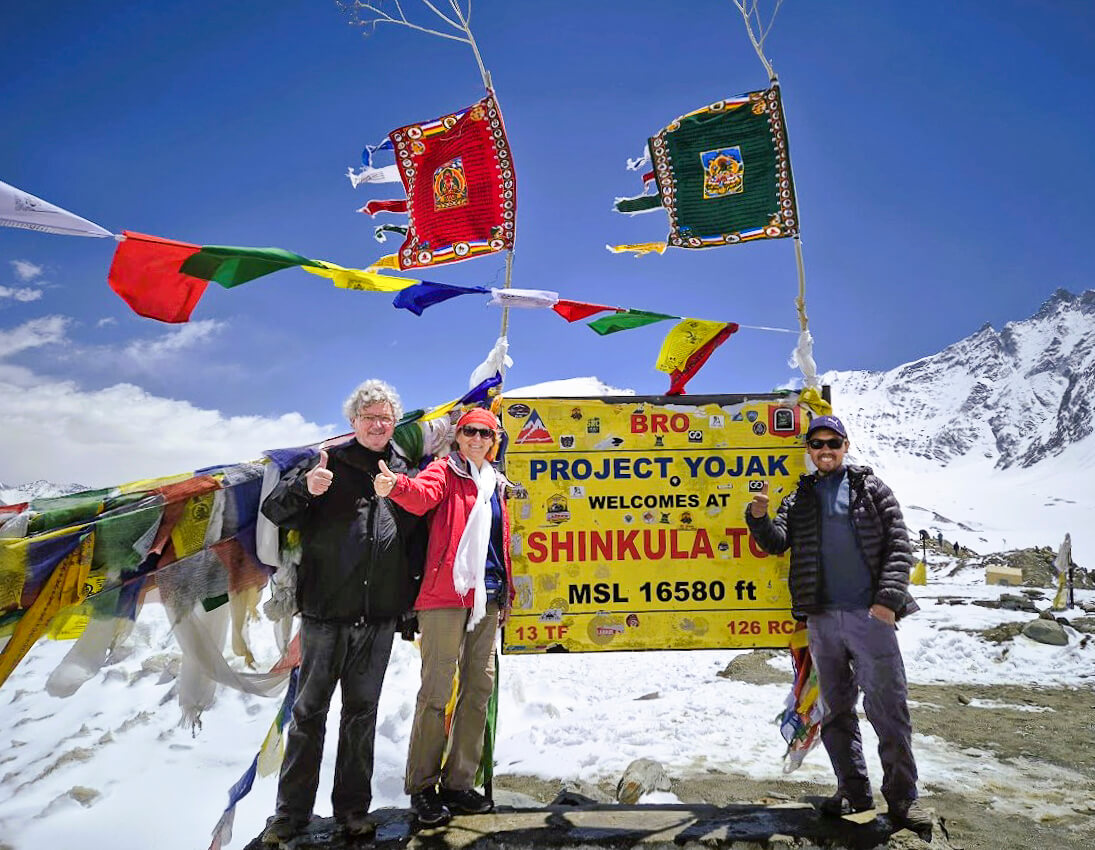
Project leader Nawang Palden met us with his car shortly after Darcha, and we were both happy to reunite. The five-hour drive gave us plenty of time to catch up on news. In the evening, we arrived in Anmu, one of the five villages participating in the adult education project since last year. We stayed overnight at the home of the teacher Sampel.
Visit to the villages Anmu, Raru, Mune, Pipcha, and Sheela: impressions and progress
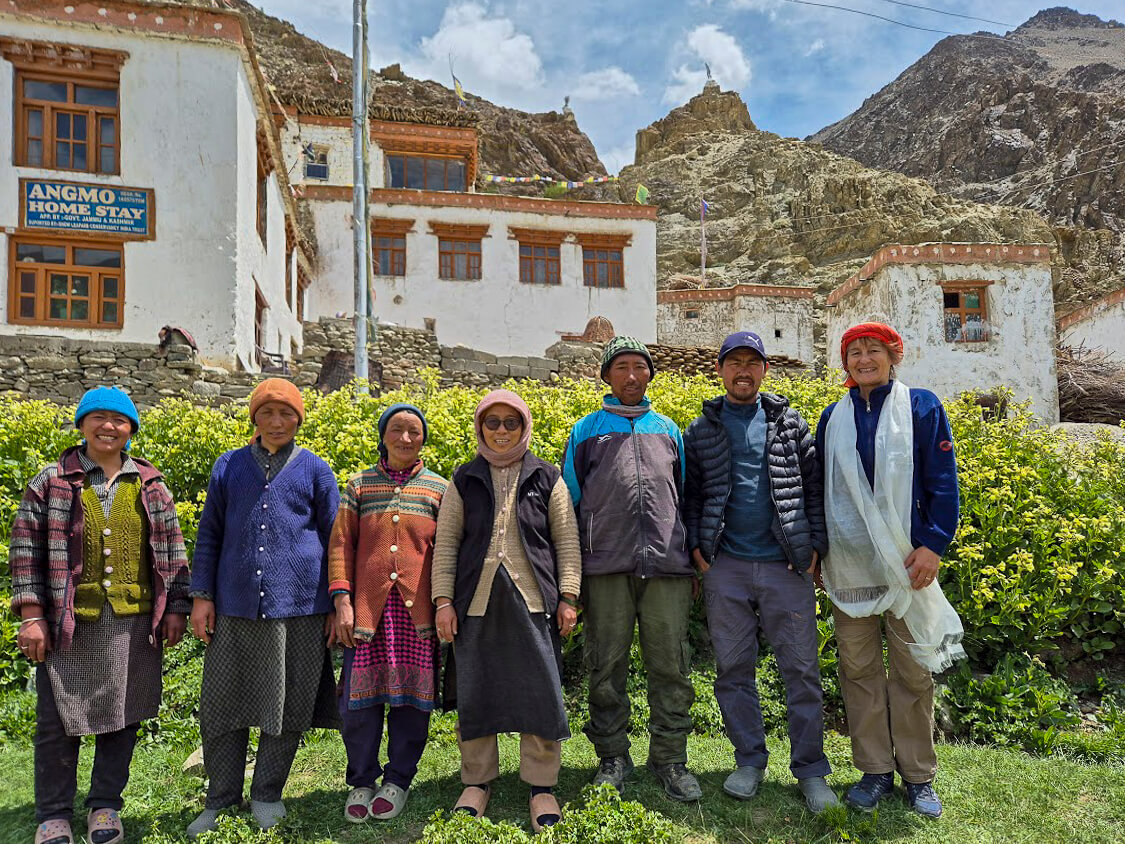
In the village of Anmu, six adults participated in the winter classes. Thanks to the small class size, they were able to benefit particularly intensively from the learning program. The teacher, Stanzin Sampel, a government-employed instructor, teaches the village children during the summer. For him, it is a rewarding change to work on the EAL project during the school-free winter months. The participants learned to read in the Ladakhi language Bothi and in English, write their names, as well as acquire basic mathematical skills.
Jampel Sherap was the only man attending the winter classes in the Lungnak Valley. I was especially interested in his motivation, as Sherap comes from a remote mountain village not yet connected to the road network. In a personal conversation, he shared with me his reasons.
Sherap is 38 years old and grew up in Shade. About 12 families live in his village. It lies at almost 4,000 meters above sea level and can only be reached via a three-hour walk from the nearest road. Sherap never had the opportunity to attend school. Last winter, he worked on road construction in the Lungnak Valley and stayed with relatives in Anmu. When he heard about the project, he immediately signed up for the winter classes. For Sherap, this fulfilled a long-cherished wish.
The teachers from the village of Raru reported how challenging it was at first to gain the attention of the participants. The question arose as to how listening as a skill can be learned and placed at the center of teaching.
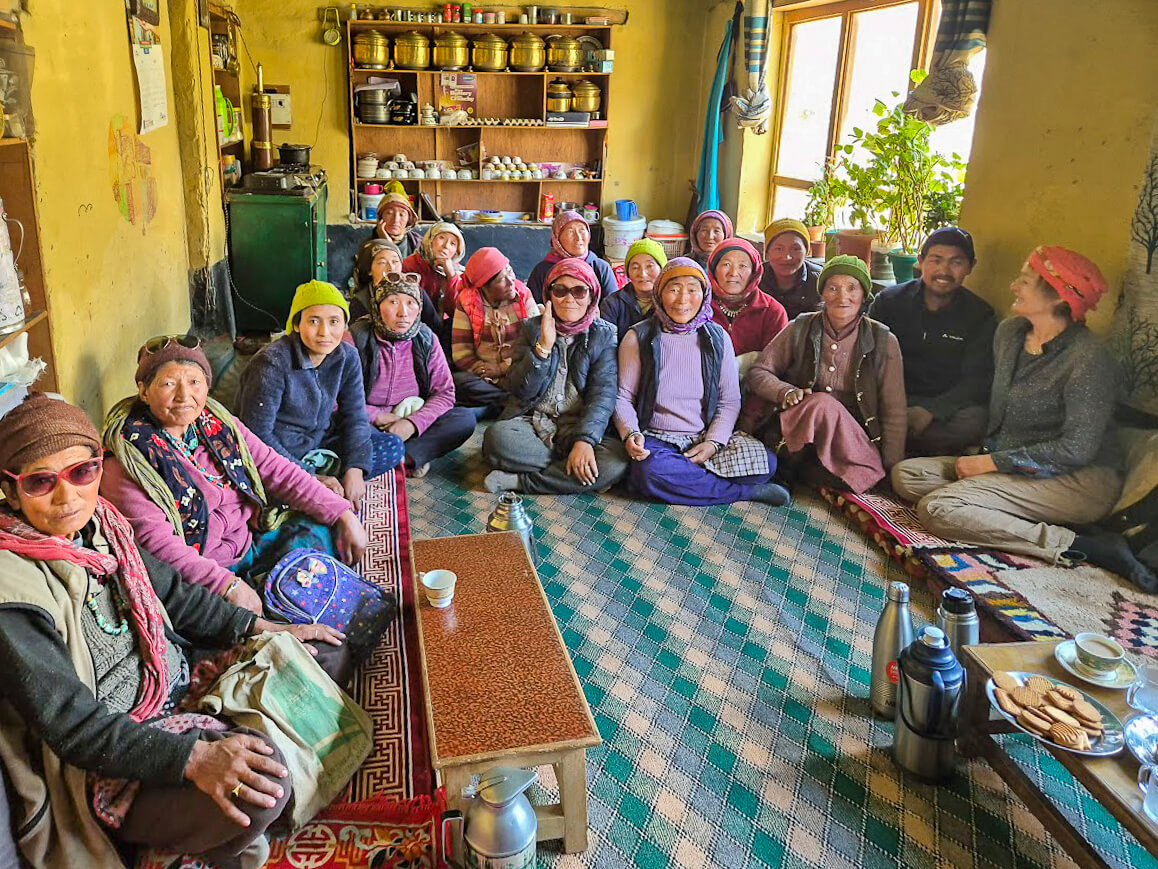
We arrived in Mune in the afternoon. The women eagerly read texts aloud and showed us what they had written in their notebooks during the past winter. Unfortunately, the news of the meeting did not reach half of the women working in the distant fields in time, so they were unable to attend the gathering.
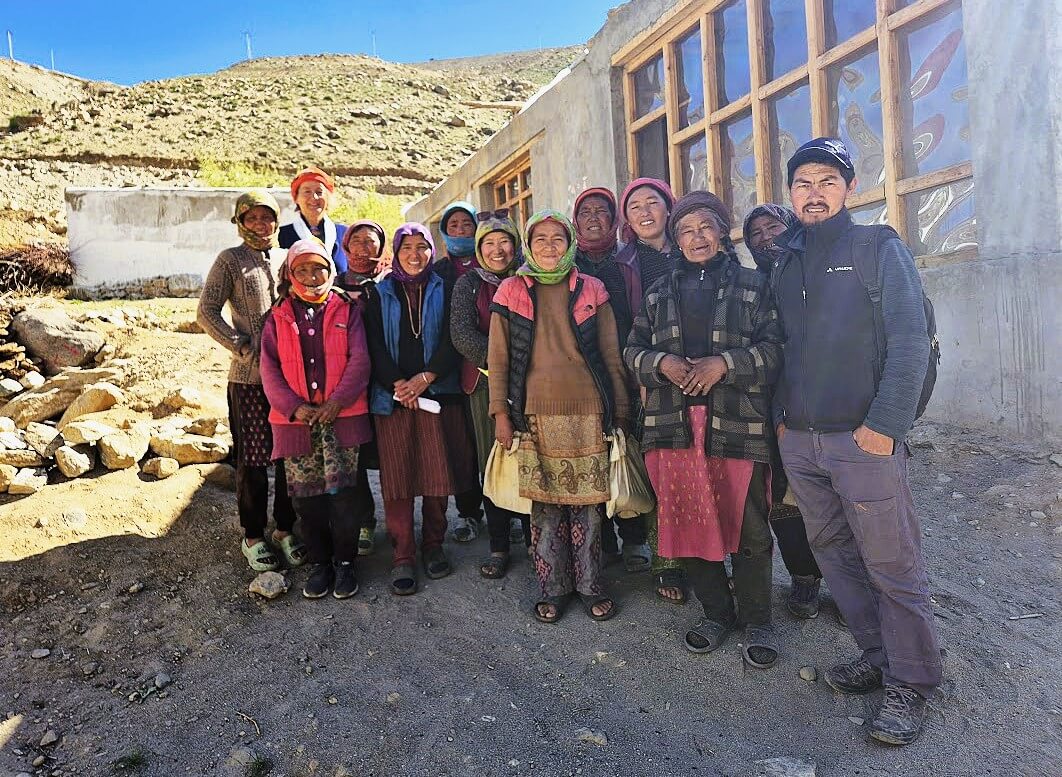
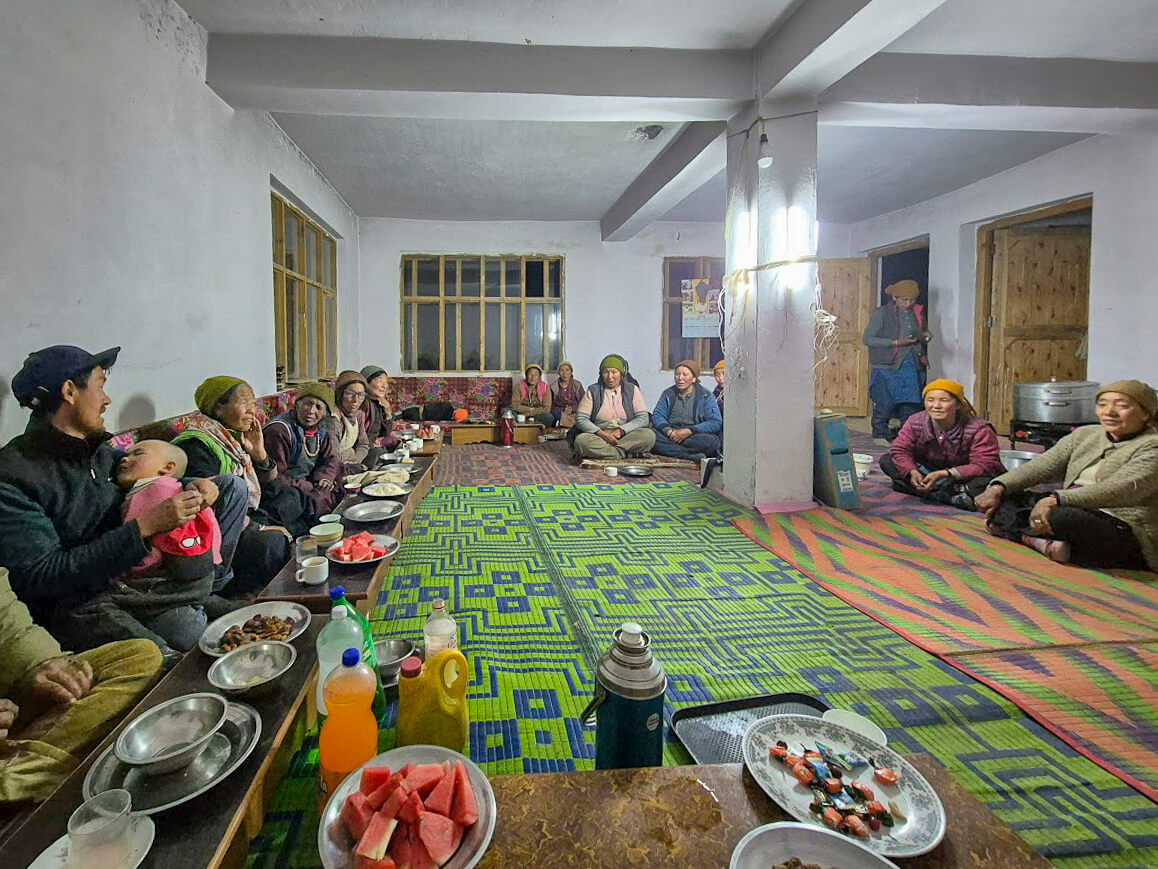
The teachers reported that after initial difficulties, the participants are now making progress and are feeling increasingly confident in reading, writing, and arithmetic. It was remarkable to see how much they had learned in such a short time.
Afterwards, the village community prepared a communal dinner for everyone. On such occasions, men and women share the tasks: the men take care of the fire outside and brew tea in a large pot, while the women are responsible for preparing the food. The homemade beer (Chang) is an indispensable part of every gathering.
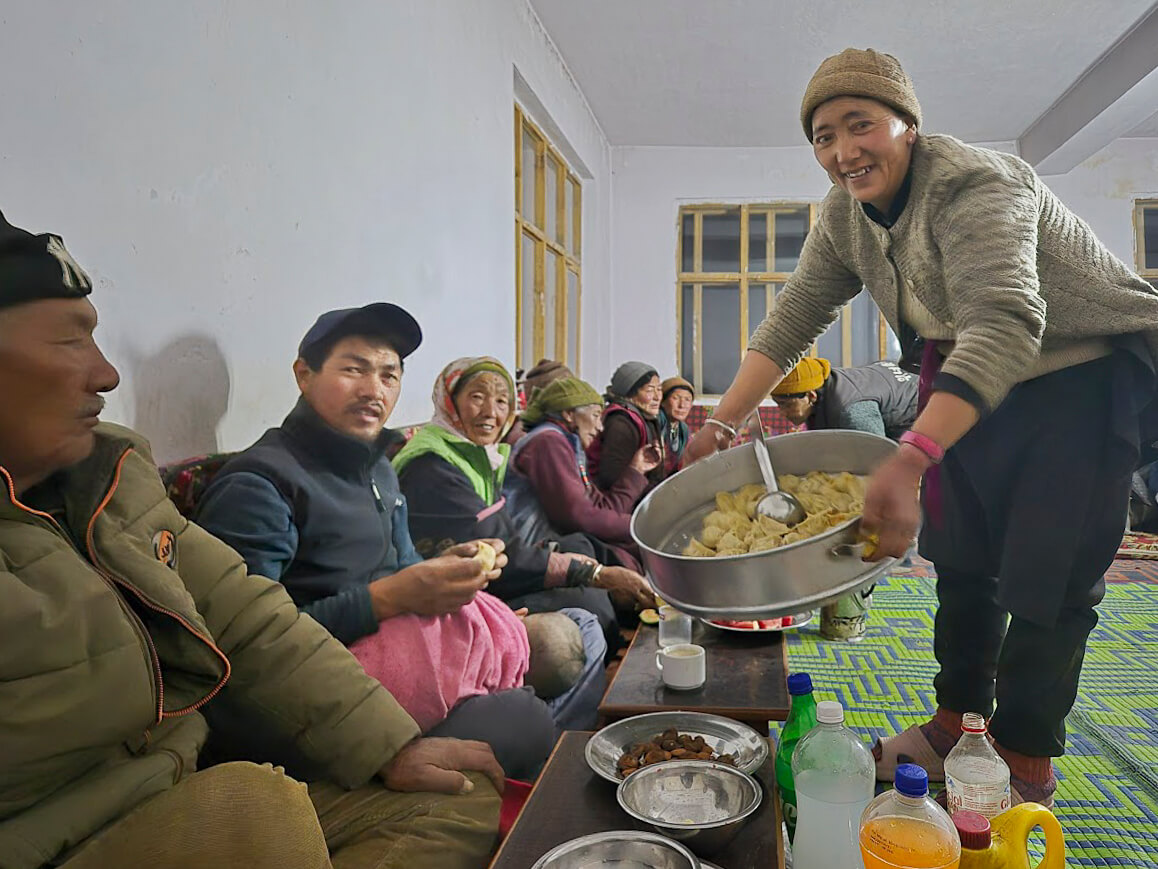
In Sheela, no classes took place last winter because four people passed away at the beginning of the planned school program. As a result, the teacher was occupied with funeral ceremonies for more than a month.
Ichar, another village in the Lungnak Valley, is interested in participating in the winter classes.
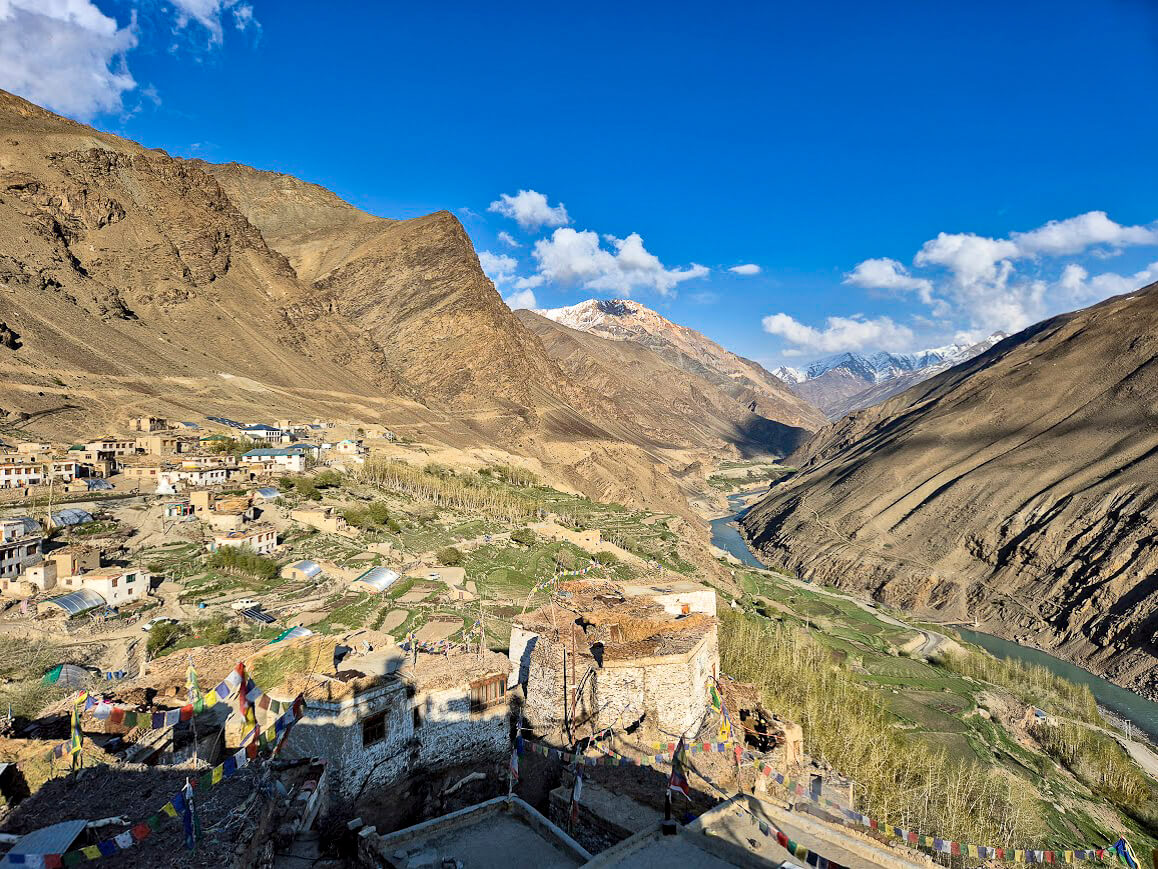
Ichar comprises approximately 50 households, with around 150 people living there. Most of them are self-sufficient. The village is located 50 km from Padum and is one of the larger villages in the Lungnak Valley. Through word of mouth, the community learned about the winter classes in the neighboring villages. On the way from Anmu to Padum, we visited Ichar, where about 30 interested women and men participated in the meeting. Nawang introduced the EAL adult education project along with its philosophy and goals. The women showed great interest. The EAL association has decided to include Ichar in the adult education project starting next winter. The teachers will be organized by the villagers themselves.
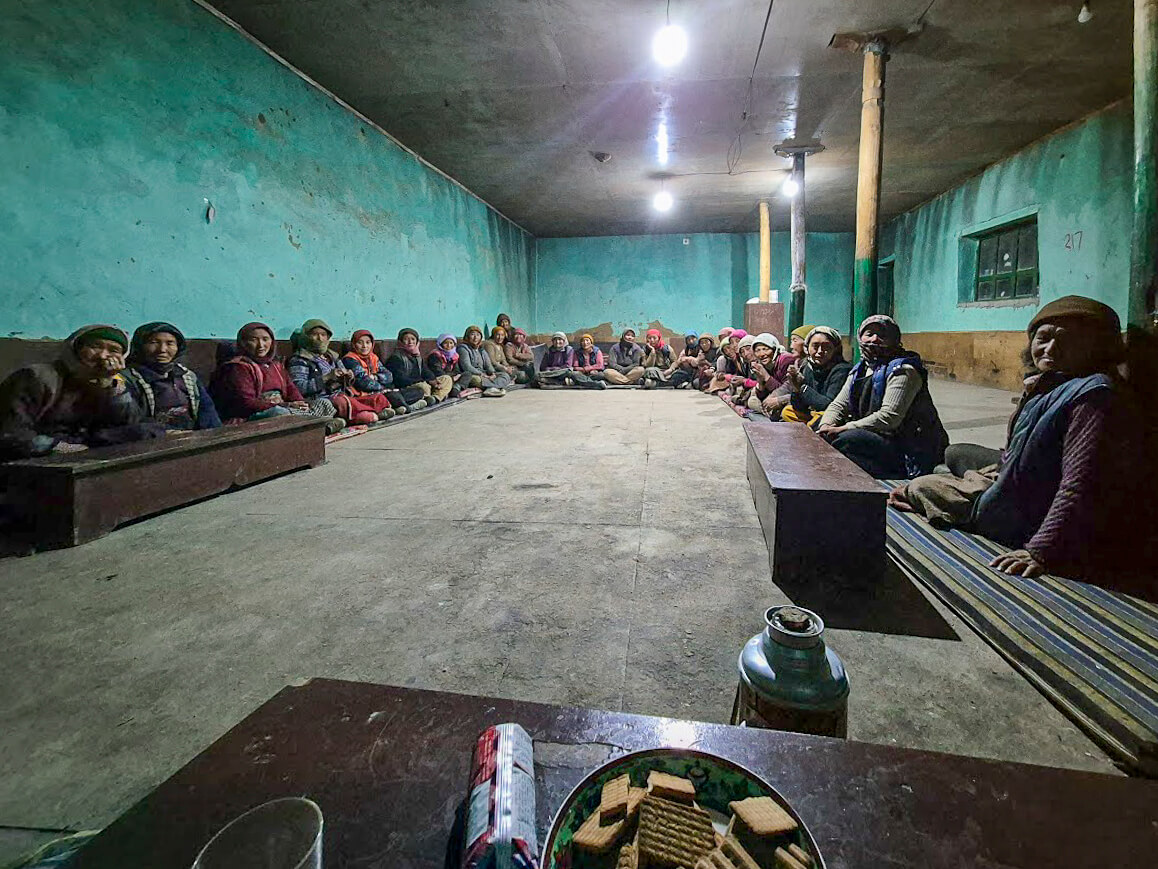
Winter Classes 2023/2024 for Children and Youth in the Senge La Region

In the villages of the Senge La region, winter classes were held with around 150 students.
We are very pleased that, thanks to donations, we were able to provide six teachers from the Education for Adults in Ladakh association. The children received academic support in subjects such as Mathematics, English, Hindi, Bothi, and Science. At the end of the course, exams were conducted, which all students successfully passed.
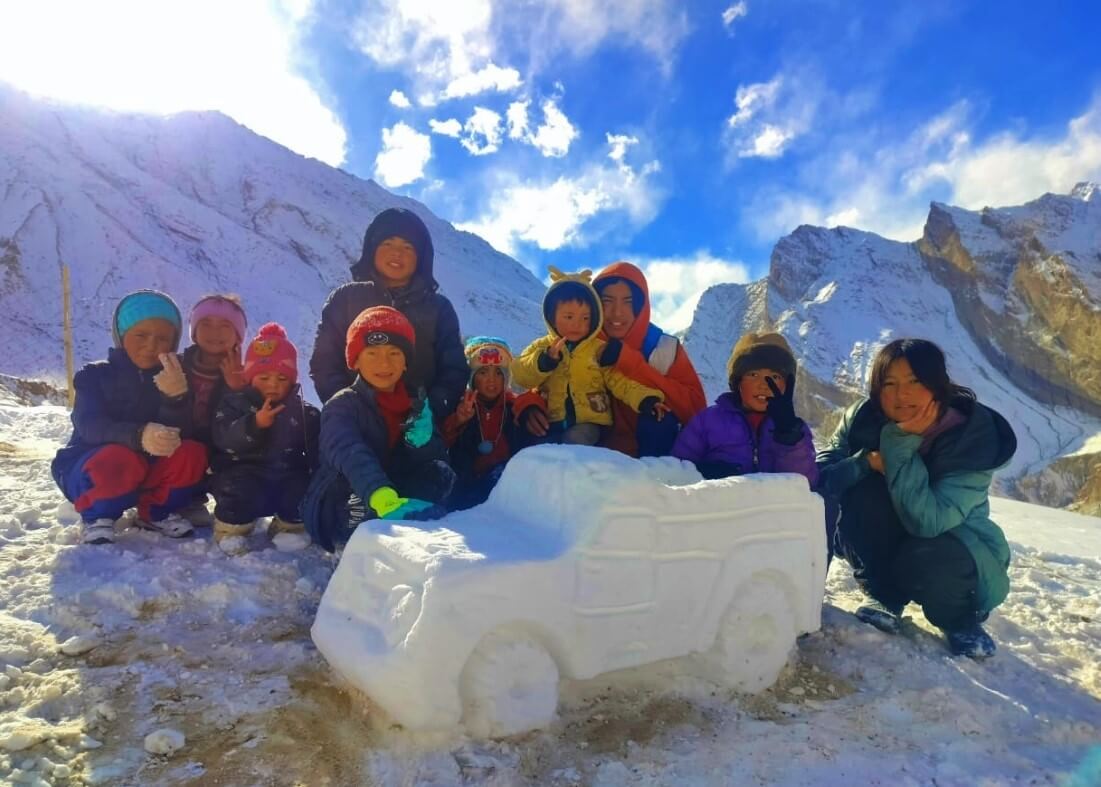
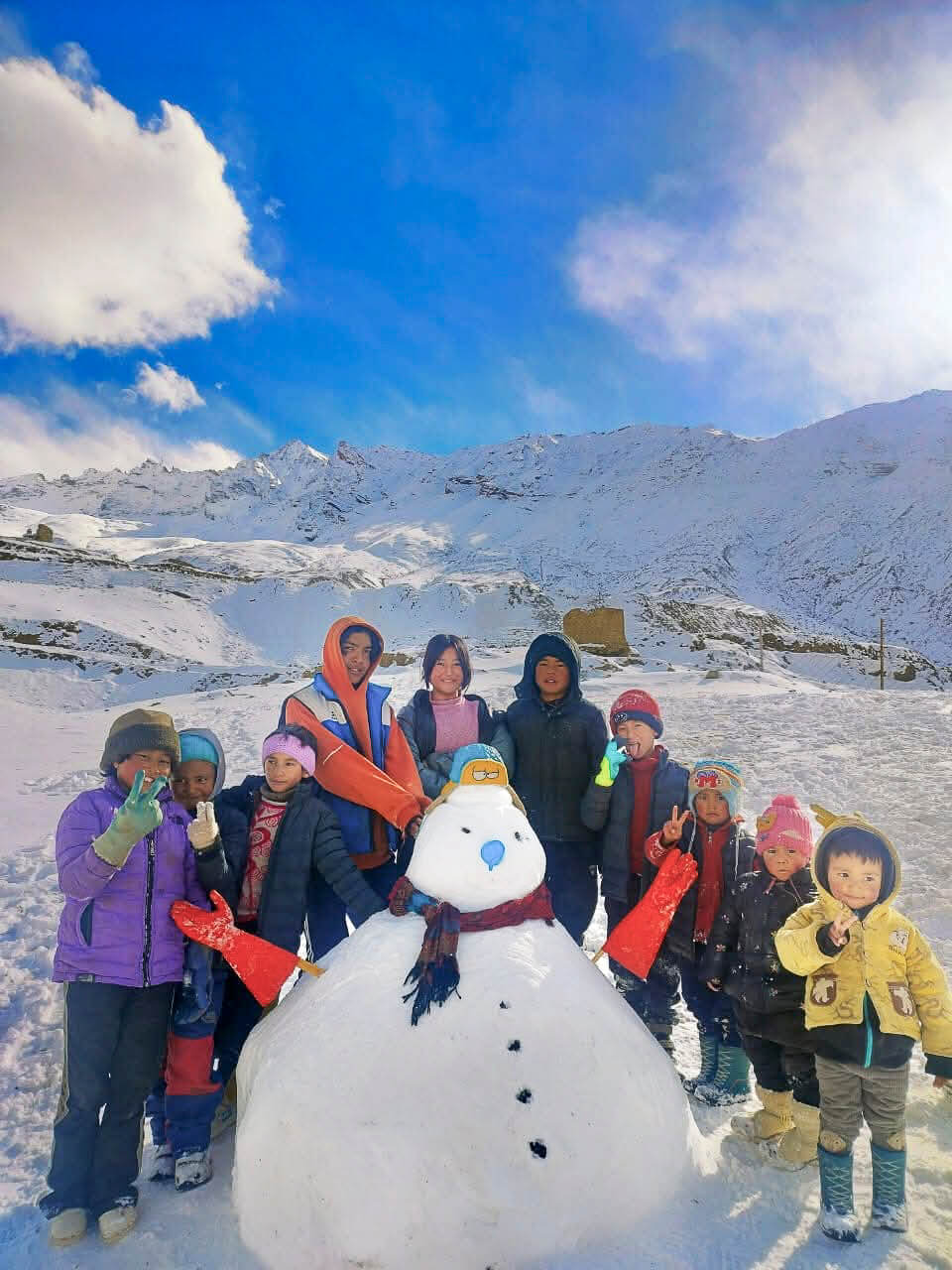
Lingshed
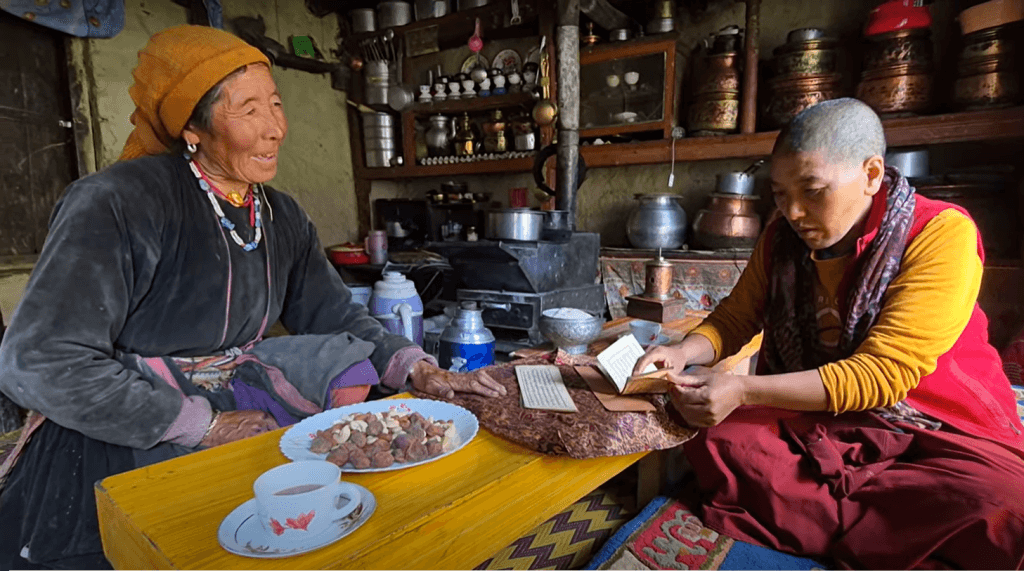
Stanzin Dolma lives alone in her house. Her husband died many years ago in an avalanche, and her five adult children have since moved out. Her day begins at 5:00 AM. Before taking care of the sheep and working in the fields, she reads philosophical texts from her prayer book for 30 minutes every day.
She says that the morning reading ritual gives her strength. However, sometimes she stops while reading because she doesn’t understand the meaning of the text. She gratefully accepted the offer to receive individual tutoring. Together with the nun Tashi, I agreed to provide her with up to 50 hours of occasional one-on-one lessons.
Skiumpata
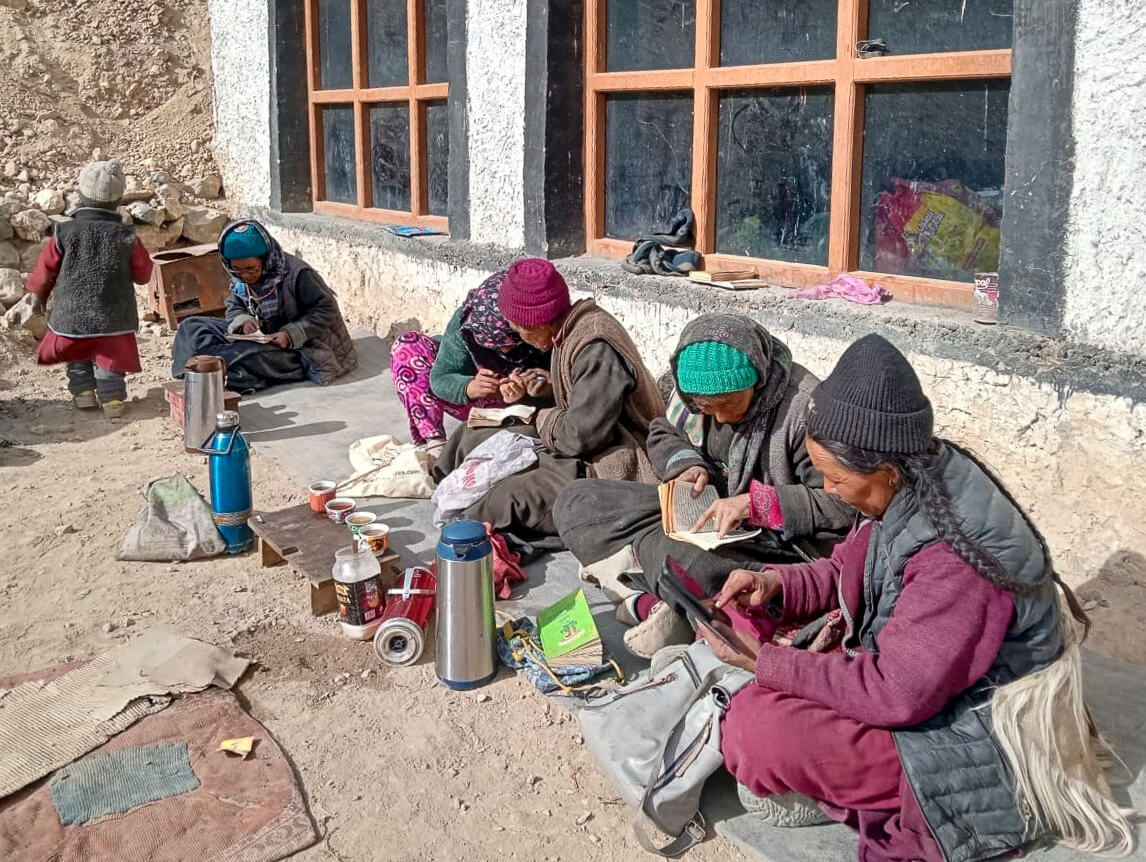
Hockey is becoming an increasingly popular winter sport in the mountain villages of Senge La.
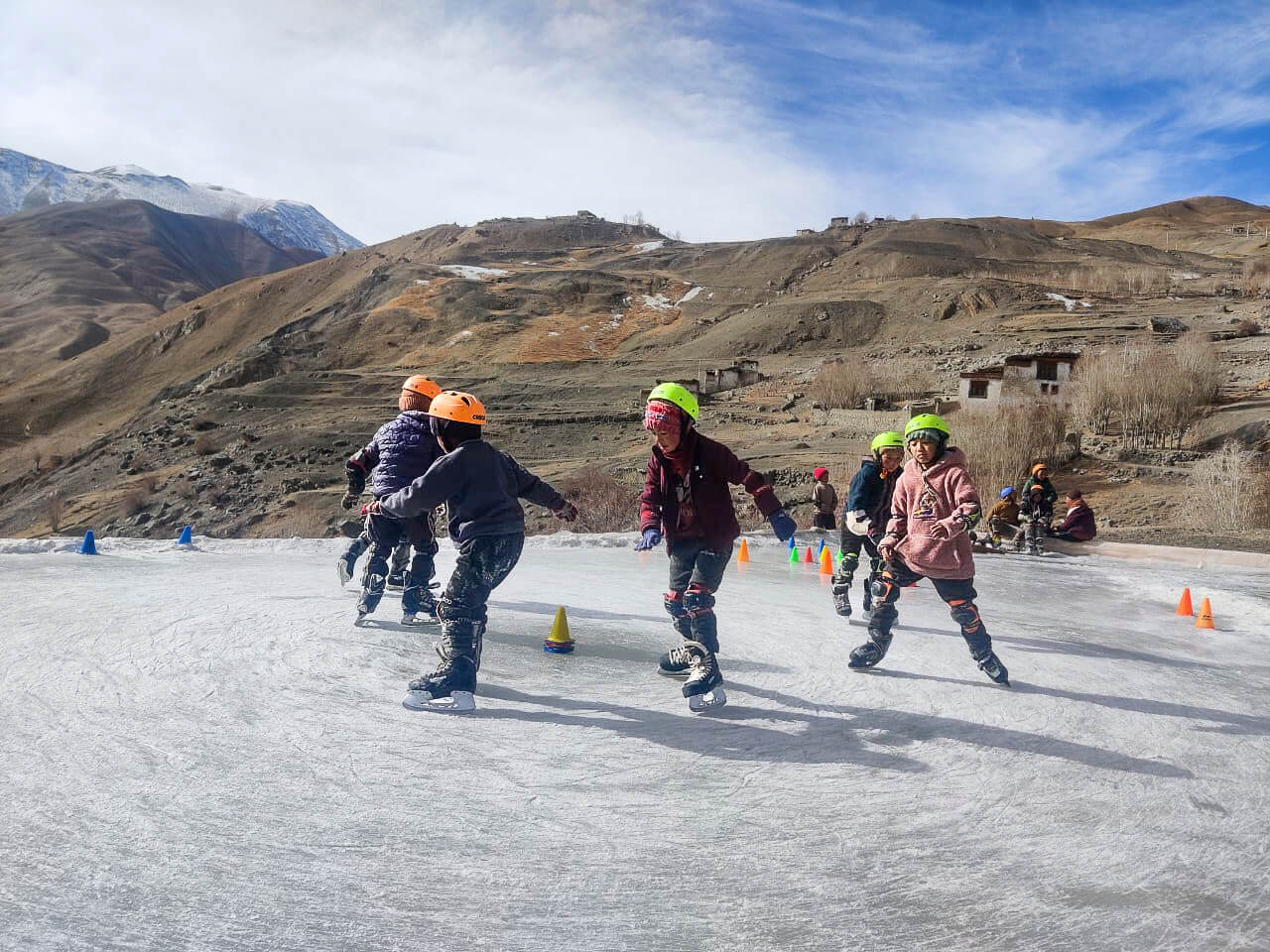
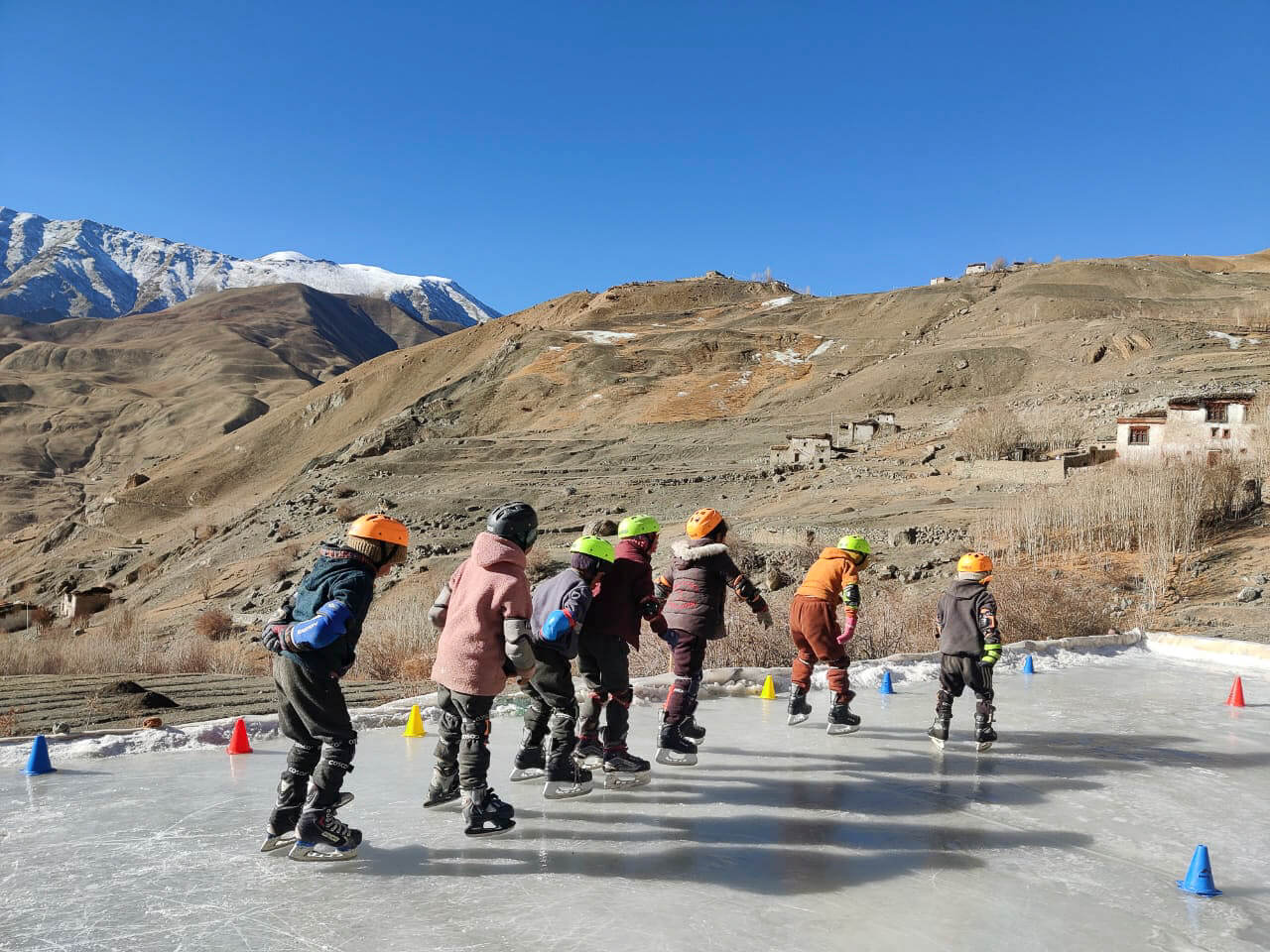
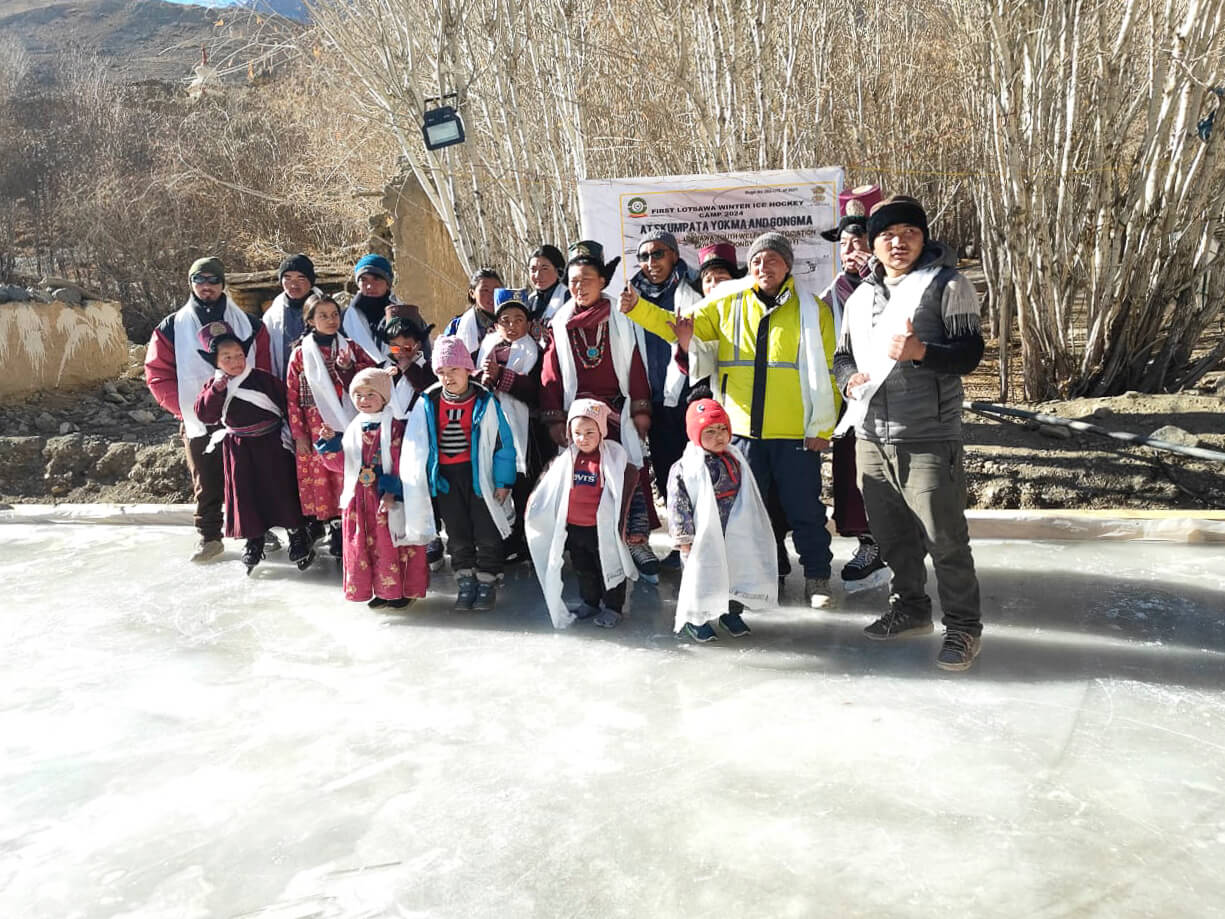
Outlook
The winter classes for adults in the Lungnak Valley will continue this year in the same format as last winter. Nawang Palden will visit the villages during the winter to support the teachers. The EAL association will finance the salaries of 11 teachers for the 2024/2025 winter classes.
For the 2024/2025 winter classes in the Senge La region, project leader Sonam Dorje is organizing additional learning opportunities in the villages. EAL provides financial support for five teachers.
The children greatly enjoy playing hockey. If conditions allow, a hockey camp will be held again next winter. Tsultim, president of SINGELA PARTNERS, organizes the camp in cooperation with Lobzang Rinchen.
In Skiumpata, winter classes will continue regularly, while in other villages of the Senge La region, they will take place only sporadically.